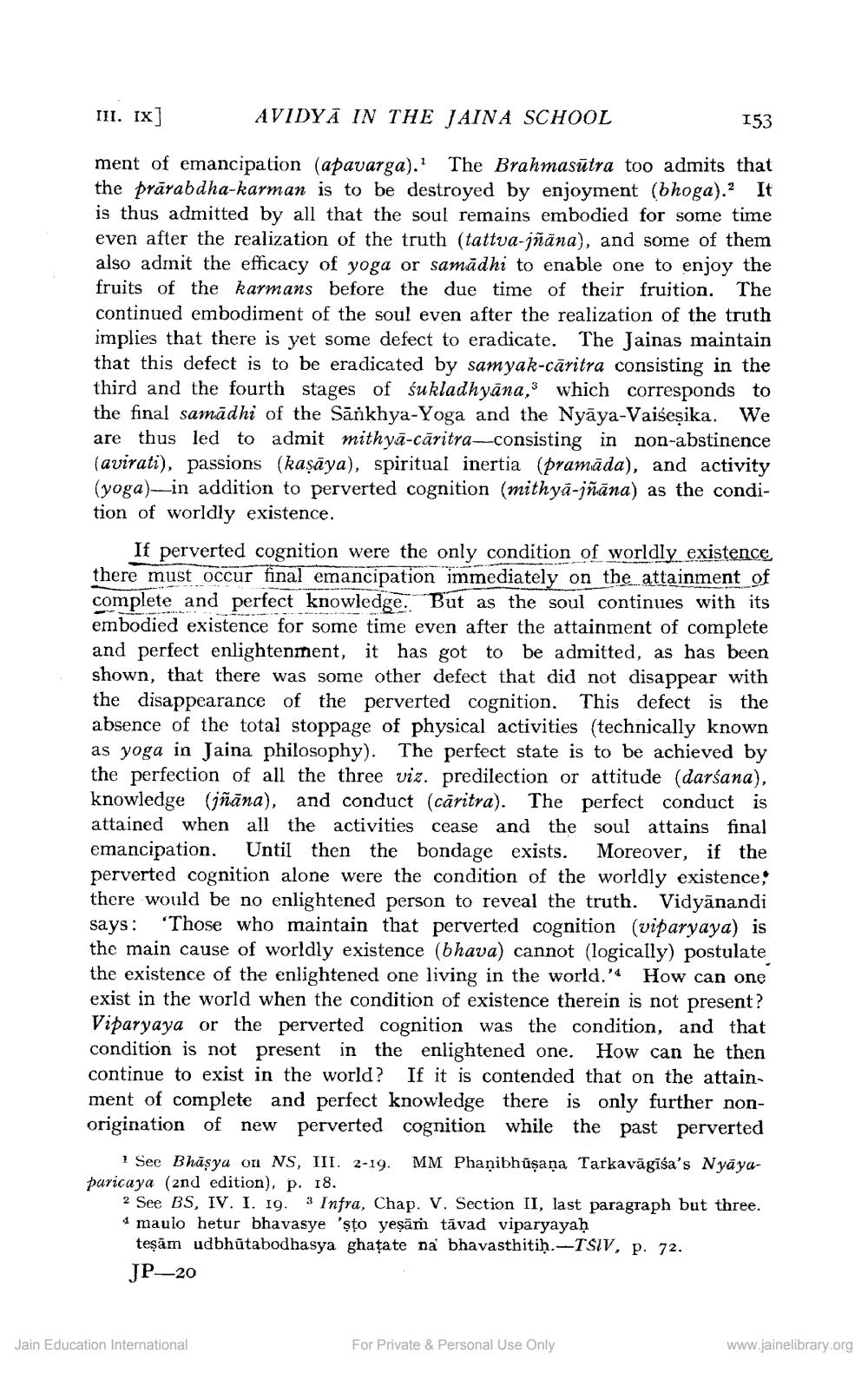________________
III. IX]
AVIDYĀ IN THE JAINA SCHOOL
153
ment of emancipation (apavarga). The Brahmasūtra too admits that the prārabdha-karman is to be destroyed by enjoyment (bhoga). It is thus admitted by all that the soul remains embodied for some time even after the realization of the truth (tattva-jñāna), and some of them also admit the efficacy of yoga or samadhi to enable one to enjoy the fruits of the karmans before the due time of their fruition. The continued embodiment of the soul even after the realization of the truth implies that there is yet some defect to eradicate. The Jainas maintain that this defect is to be eradicated by samyak-caritra consisting in the third and the fourth stages of śukladhyāna,3 which corresponds to the final samādhi of the Sānkhya-Yoga and the Nyāya-Vaiseşika. We are thus led to admit mithya-cāritra-consisting in non-abstinence (avirati), passions (kaşāya), spiritual inertia (pramāda), and activity (yoga)-in addition to perverted cognition (mithya-jñāna) as the condition of worldly existence.
If perverted cognition were the only condition of worldly existence, there must occur final emancipation immediately on the attainment of complete and perfect knowledge. But as the soul continues with its embodied existence for some time even after the attainment of complete and perfect enlightenment, it has got to be admitted, as has been shown, that there was some other defect that did not disappear with the disappearance of the perverted cognition. This defect is the absence of the total stoppage of physical activities (technically known as yoga in Jaina philosophy). The perfect state is to be achieved by the perfection of all the three viz. predilection or attitude (darśana), knowledge (jñāna), and conduct (căritra). The perfect conduct is attained when all the activities cease and the soul attains final emancipation. Until then the bondage exists. Moreover, if the perverted cognition alone were the condition of the worldly existence, there would be no enlightened person to reveal the truth. Vidyānandi says: 'Those who maintain that perverted cognition (viparyaya) is the main cause of worldly existence (bhava) cannot (logically) postulate the existence of the enlightened one living in the world." How can one exist in the world when the condition of existence therein is not present? Viparyaya or the perverted cognition was the condition, and that condition is not present in the enlightened one. How can he then continue to exist in the world? If it is contended that on the attain ment of complete and perfect knowledge there is only further nonorigination of new perverted cognition while the past perverted
1 See Bhāşya on NS, III. 2-19. MM Phaņibhūṣaṇa Tarkavāgāśa's Nyāyaparicaya (2nd edition), p. 18.
2 See BS, IV. I. 19. 3 Infra, Chap. V. Section II, last paragraph but three. 4 maulo hetur bhavasye 'sto yeşām tāvad viparyayaḥ
teşām udbhūtabodhasya ghațate na bhavasthitiḥ.-TSIV, p. 72. JP_20
Jain Education International
For Private & Personal Use Only
www.jainelibrary.org




